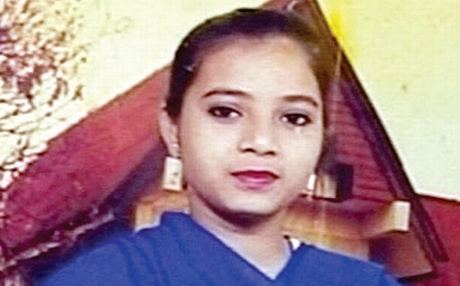 Ahmedabad, Sep 23: The Central Bureau of Investigation (CBI) today questionned Gujarat Minister of State for Law Pradeepsinh Jadeja in the Ishrat Jahan fake encounter case, sources in the Central agency said here.
Ahmedabad, Sep 23: The Central Bureau of Investigation (CBI) today questionned Gujarat Minister of State for Law Pradeepsinh Jadeja in the Ishrat Jahan fake encounter case, sources in the Central agency said here.
The CBI had also sent a notice to state Advocate General Kamal Trivedi, asking him to appear before it, sources added.
Jadeja was questioned in Gandhinagar about an alleged meeting held in November 2011 to decide the strategy "to obstruct the investigation" of the fake encounters of Ishrat Jahan and three others, CBI sources said.
Suspended IPS officer G L Singhal, who was among the nine persons who attended the meeting, had submitted two pen drives to investigators containing the recorded conversation of the meeting.
Singhal is now out on bail, as the agency failed to file the charge sheet against him in the stipulated 90 days.
The nine people who were present in the meeting held in private chamber of Advocate General Trivedi were G L Singhal, Singhal's lawyer friend Rohit Verma, G C Murmu, A K Sharma, then MoS (home) Praful Patel, Jadeja, then former minister and now agriculture minister Bhupendrasinh Chudasama and another accused in Ishrat case, Tarun Barot.
Last week, CBI grilled Murmu, secretary to Chief Minister Narendra Modi, and Crime Branch Joint Commissioner A K Sharma.
The agency also grilled suspended IPS officer D G Vanzara last week regarding his resignation letter in which he had hit out at Modi government for failing to protect the jailed police officers with regard to fake encounter cases.
CBI has named Singhal, Vanzara, suspended IPS officers P P Pandey and Tarun Barot, N K Amin, retired DSP J G Parmar and commando Anaju Chaudhary in the charge sheet, accusing them of murder and
criminal conspiracy with regard to the encounter killing of 19-year-old Ishrat, Javed Sheikh alias Pranesh Pillai, Zeeshan Johar and Amjad Ali Rana on the outskirts of Ahmedabad in June 2004.
CBI's probe in the case was still on, it had said when filing the charge sheet in July 2013.





Comments
Add new comment